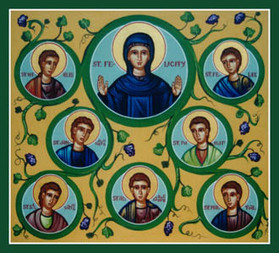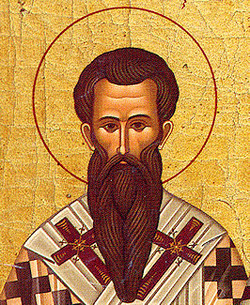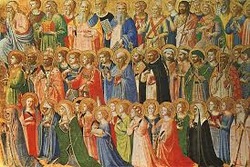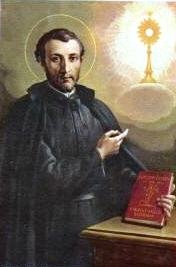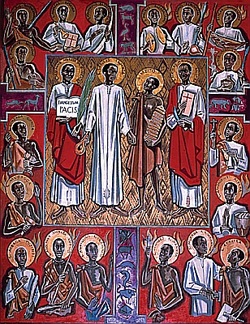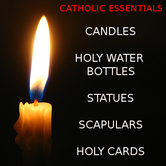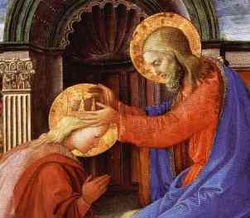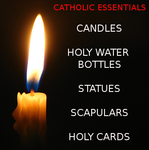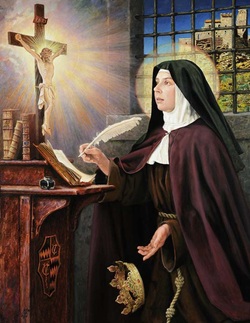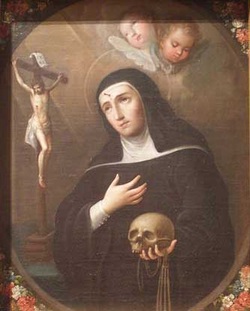
Patron of impossible cases
1381 - 1457
St. Rita was born at Spoleto, Italy in 1381. At an early age, she begged her parents to allow her to enter a convent. Instead they arranged a marriage for her. Rita became a good wife and mother, but her husband was a man of violent temper. In anger he often mistreated his wife. He taught their children his own evil ways.
Rita tried to perform her duties faithfully and to pray and receive the sacraments frequently. After nearly twenty years of marriage, her husband was stabbed by an enemy but before he died, he repented because Rita prayed for him. Shortly afterwards, her two sons died, and Rita was alone in the world. Prayer, fasting, penances of many kinds, and good works filled her days. She was admitted to the convent of the Augustinian nuns at Cascia in Umbria, and began a life of perfect obedience and great charity.
Sister Rita had a great devotion to the Passion of Christ. "Please let me suffer like you, Divine Saviour," she said one day, and suddenly one of the thorns from the crucifix struck her on the forehead. It left a deep wound which did not heal and which caused her much suffering for the rest of her life. She died on May 22, 1457. She is the patroness of impossible cases. Her feast day is May 22.
Some criticism have addressed Rita's portrayal of in an inaccurate religious habit. While most common images of Rita show her in a classic Augustinian traditional black habit, historical accuracy shows that the religious sisters in the monastery of Saint Mary Magdalene in 14th-century Cascia, Italy wore beige or brown habits, particularly with a white veil with a brown edge ribbon. This correction was particularly noted in the 2004 film Santa Rita da Cascia.
The forehead wound
One day when she was about sixty years of age, she was meditating before an image of Christ crucified, as she was accustomed to do. Suddenly a small wound appeared on her forehead, as though a thorn from the crown that encircled Christ’s head had loosed itself and penetrated her own flesh. For the next fifteen years she bore this external sign of stigmatization and union with the Lord.
Roses
A story is told that near the end of her life, Rita was bedridden at the convent. A cousin visited her and asked her if she desired anything from her old home. Rita responded by asking for a rose from the garden. It was January and her cousin did not expect to find anything due to the weather. However, when her relative went to the house, a single blooming rose was found in the garden and her cousin brought the rose and fig back to Rita at the convent. St. Rita is often depicted holding roses or with roses nearby. On her feast day, churches and shrines of St. Rita provide roses to the congregation that are blessed by the priest during Mass.
